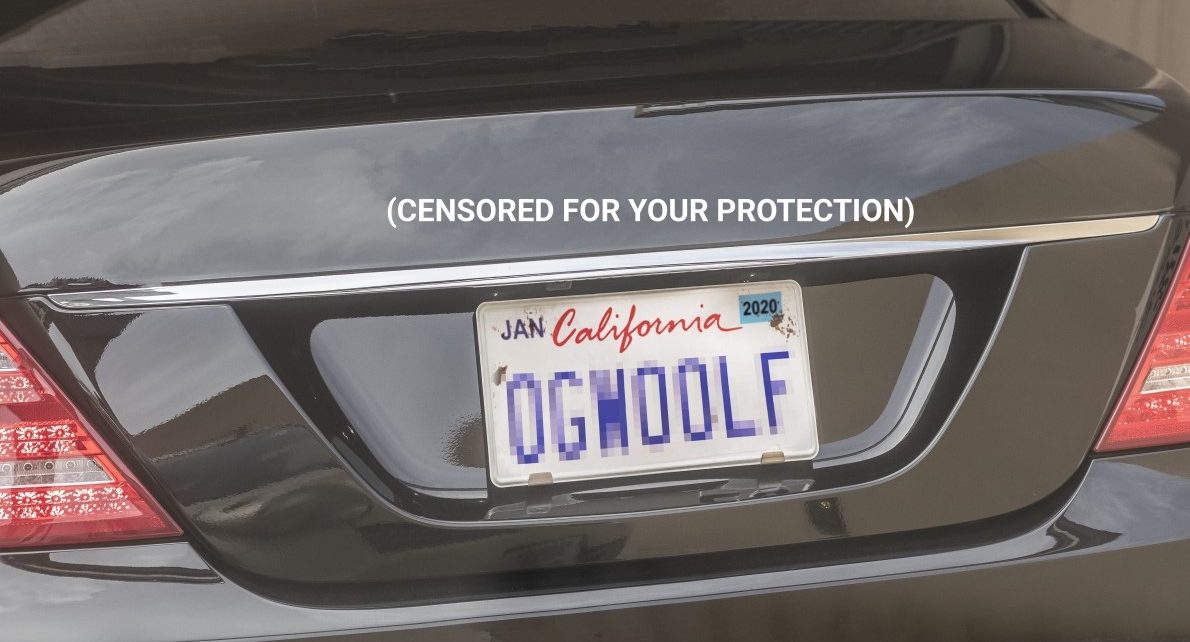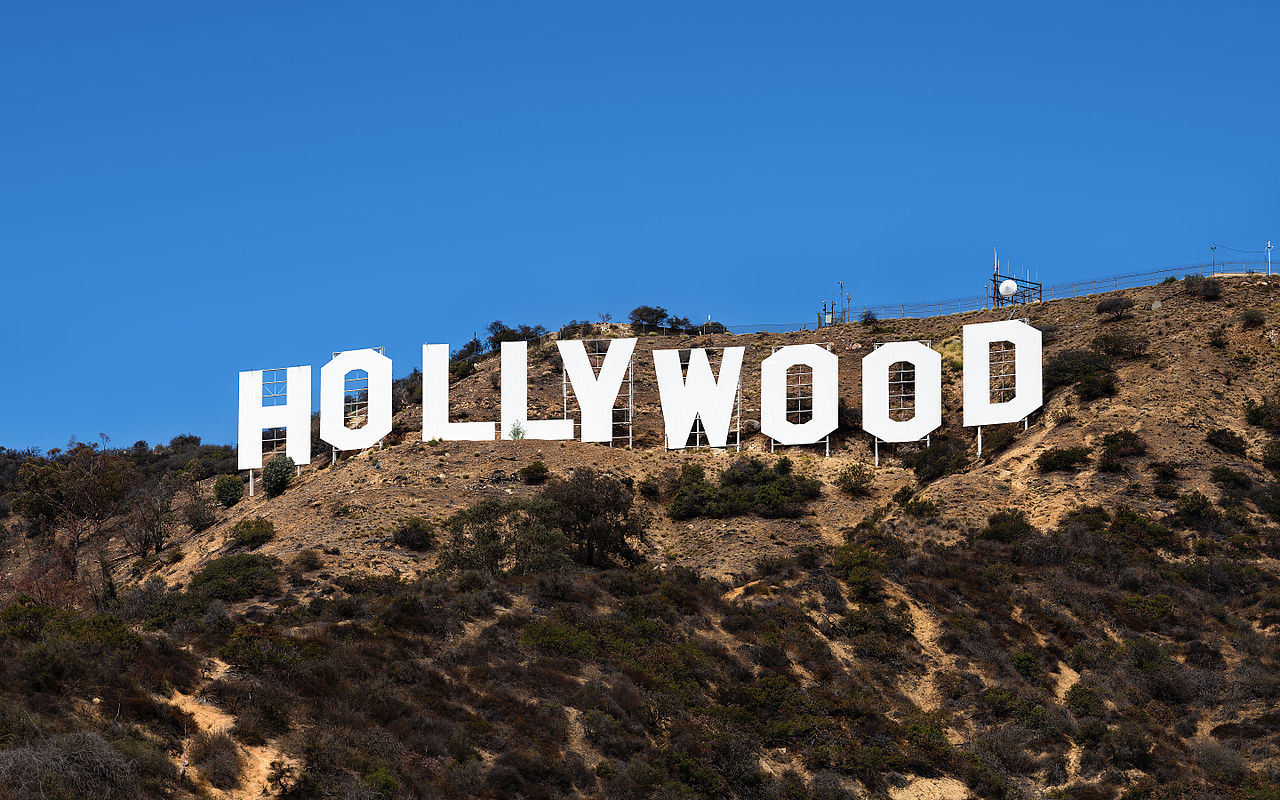
The plate at the center of Ogilvie v. Gordon. (Photo: Pacific Legal Foundation)
Lawsuit May End Most Personalized License Plate Restrictions
Lawsuit claims freedom of speech violations in DMV vanity plate rejections
By Evan Symon, March 12, 2020 1:40 pm
Earlier this week, a lawsuit filed at a San Francisco federal court is seeking an end to most personalized ‘vanity’ license plate restrictions.
In the lawsuit filed by the Pacific Legal Foundation on behalf of Paul “Chris” Ogilvie and several other clients, they are suing the California Department of Motor Vehicles (DMV) over first amendment violations, with freedom of speech being specifically named.
“This broad and vague regulation requires four full-time DMV administrators police license plate applications,” stated the lawsuit. “Those denials deprive plaintiffs their right to freedom of speech, in violation of the First Amendment to the United States Constitution.”
The DMV has maintained for years that it prevents some words or messages on personalized license plates because of how others could see it as offensive. In 2018 alone, the DMV rejected more than 30,000 of the 250,000 applications for personalized plates because of that reason. As personalized plates can cost up to $103 for new plates and up to $83 for renewals, with an average of $53 and $43 respectively, all the combined rejections cost California roughly well over $1 million a year.
However, the DMV has remained adamant about the process.
“We got calls about it all the time,” noted “Terry” a former DMV employee. “People in line would also ask about it all the time. We gave them directions on how to apply and everything. Some would come in yelling at us about rejections too. This is something some people are passionate about, and even though there was nothing we could do, some people thought if they yelled they could get their way.”
“But we stayed steadfast on it. We weren’t even allowed to comment on it and leave it all for the few people who made the decisions. That’s how serious the DMV takes the plates.”
The main plate of discussion in the lawsuit concerned one reading “OGWOOLF.”
Paul “Chris” Ogilvie, an Army veteran from Concord, chose the plate name by using the first two letters of his last name that was a nickname he received in the Army with another nickname. The DMV turned it down as they saw that “OG” could be seen as a gang nickname, as “OG” is often shortened from “original gangster.”
“This is a tough case,” said John Raines, a constitutional lawyer. “The first amendment is clearly broken here, but the DMV policy is also blocking hate speech and words that could be argued as distractions for drivers.”
“But as long as the lawsuit doesn’t create a blanket undoing of the process, which it sounds like it isn’t going to do, then they’ll probably win. Although not all restrictions are going to go away, and from what I’ve seen, a lot of words will still be banned.”
“But honestly, with everything people put on their cars today, from window stickers to bumper stickers to temporary paint, it’s not like a license plate is holding back everything the driver wants to say either.”
Ogilvie v. Gordon is expected to be heard soon in San Francisco.
- Bill to Require Law Enforcement Disclosure if AI Was Used To Help Write Reports - August 7, 2025
- Gov. Newsom Files FOIA Request To ‘Expose True Cost’ Of L.A. Federal Troop Deployment for Anti-ICE Riots - August 6, 2025
- California Redistricting: How Newsom’s Plan Will Demolish Hard Fought GOP Gains - August 6, 2025




